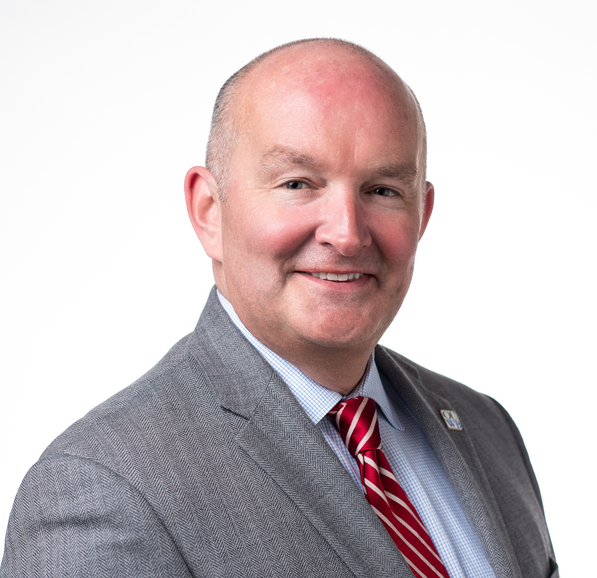
The chair of Oakland University William Beaumont School of Medicine’s Department of Foundational Medical Studies has been named a fellow of the American Association for Anatomy.
The organization announced on Feb. 19 that Douglas Gould, Ph.D., professor of Anatomy and Neuroscience and chair of the Department of Foundational Medical Studies, OUWB, is a member of the latest class of eight fellows.
He is the second OUWB faculty member to earn the distinction with the American Association for Anatomy (AAA). Judith Venuti, Ph.D., professor, OUWB Department of Foundational Medical Studies was awarded the honor in 2012.
“It’s a recognition from my peers that the work I’ve spent 25 years doing is appreciated…that it wasn’t all just for my career, but that it also has value for others,” Gould said.
In announcing the latest class of fellows, AAA issued a press release that said, “The rank of fellow of the American Association for Anatomy (FAAA) is designed to honor distinguished members who have demonstrated excellence in science and in their overall contributions to the anatomical sciences.”
‘Best decision I ever made’
Gould joined the OUWB faculty in July, 2012.
He had been at The Ohio State University College of Medicine, where he was a professor and the director of the Division of Anatomy for six years.
Before Ohio State, Gould was an associate professor at the University of Kentucky College of Medicine for nine years.
Throughout his career, Gould’s scholarly endeavors have focused on the design, creation, implementation and evaluation of learning tools for the modern medical student. He has secured almost $1 million total in funding from the National Institutes of Health and National Science Foundation for his medical education scholarly work.
He has served as editor-in-chief for the Medical Science Educator, and he currently serves as the associate editor for all anatomy-related submissions to MedEdPortal.
Further, Gould has published more than 30 peer-reviewed manuscripts, given some 70 presentations, and has authored and edited 10 texts and ancillary learning tools.
Gould calls moving to OUWB the “best decision I ever made.”
One reason?
What he identifies as a “hyper-collegial, friendly, and supportive culture.”
“I always tell people I’ve never worked anywhere like (OUWB),” he said. “We have the largest cadre of dedicated medical educators in one place and for the most part, they are all on one floor…and it’s created this hyper-collegial, friendly, supportive culture.”
Gould was named chair of the Department of Foundational Medical Studies in 2017 after Venuti stepped down. He said he was prepared for the role, in part, as a result of “a ton of leadership training” via organizations such as the Association for Academic Leadership and Academic Impressions.
“I’m a firm believer that you can never get enough leadership training,” he said.
Since becoming department chair, Gould said a major point-of-pride has been his formation and implementation of the school’s Leadership Institute for Faculty Development.
He said he’s also been intent on maintaining OUWB’s culture, promoting diversity, equity, and inclusion, and taken steps to bolster the school’s research work.
“I wanted to make sure that the 36 medical educators who are here don’t end up suffering the same fate that I endured while coming up through the academic ranks,” he said. “That is, you’re working with 30 or so colleagues that are NIH-funded and without funding, your voice doesn’t carry the same weight. When decisions are made, you’re not in the mix.”
To increase collaborative scholarly efforts, Gould organized OUWB faculty into scholarly interest groups (there are now seven). Gould said the requirement is that faculty members need to join at least one of the groups, but noted that “several faculty members are in multiple groups.”
The scholarly groups meet monthly and Gould said he has high expectations for the quantity and rigor of educational scholarship produced by the department as a result of the program.
“With this many people marching in the same direction, we should be tearing it up, making real waves,” he said.
‘Super-honored’
Gould said he has been involved with numerous professional development organizations during his career. He started spending more time with the American Association for Anatomy when he was at Ohio State and has been with the organization for about 20 years.
He said being named a fellow gives him a great sense of satisfaction.
“I think they are recognizing my scholarly contributions and the service I put in for the organization and the profession as a whole,” Gould said. “It feels great and I’m super-honored.”

